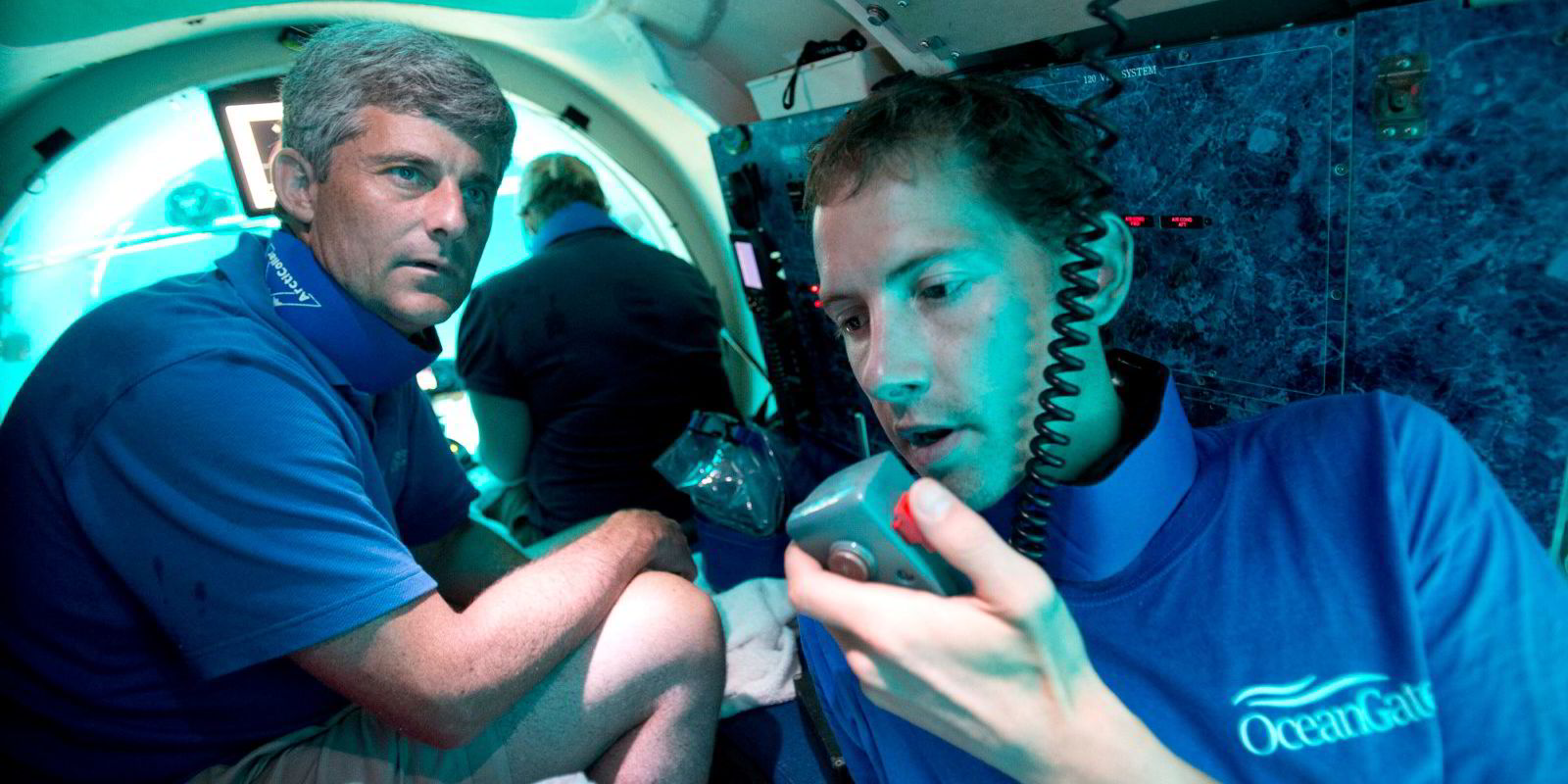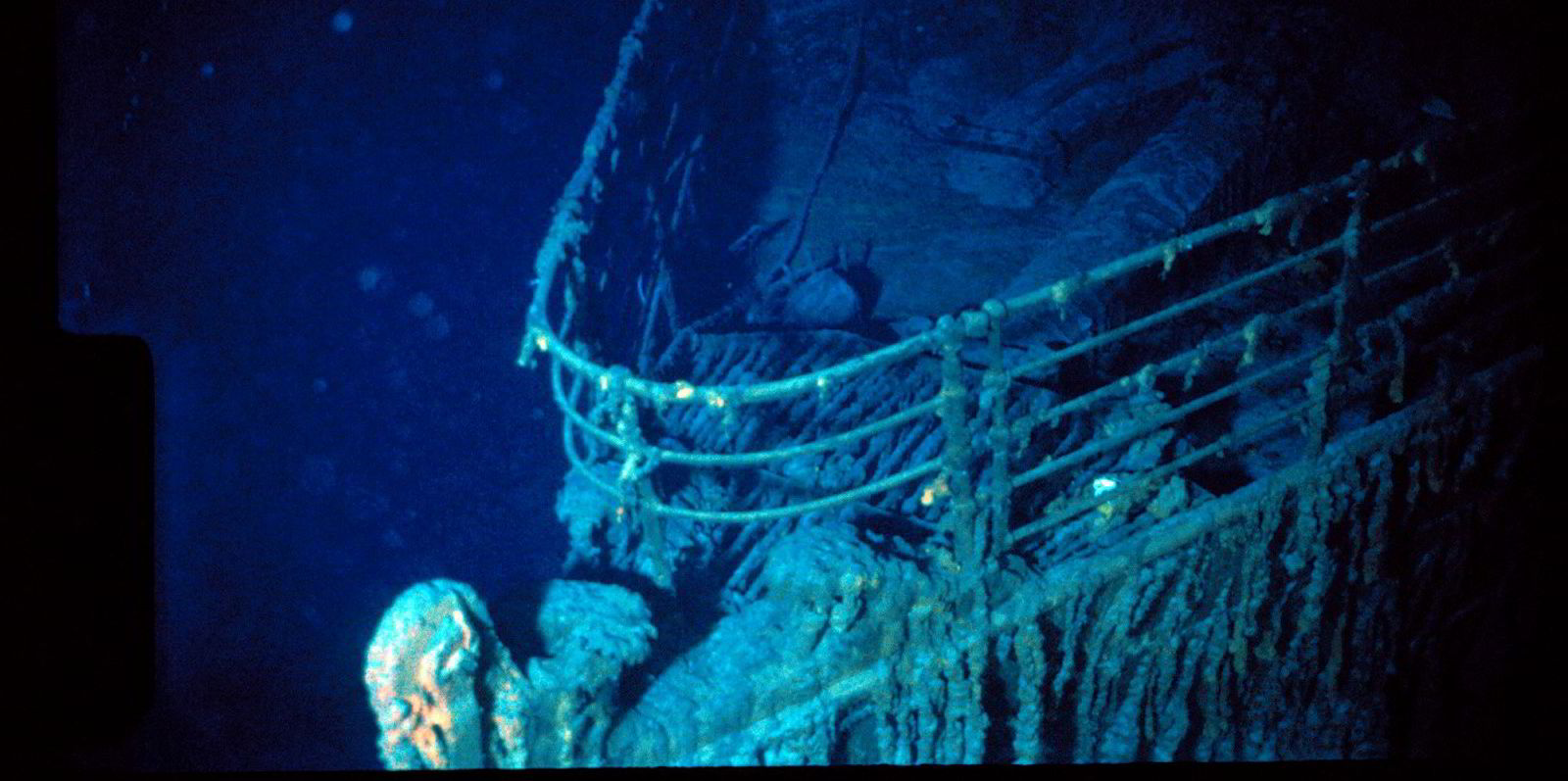Maritime search-and-rescue teams should receive more psychological support for stress and mental exhaustion after shortcomings were highlighted by the deaths of five people on a submersible diving down to the wreck of the Titanic, according to documents lodged at the International Maritime Organization.
The international hunt for the Titan submersible exposed limitations in search-and-rescue planning, and have prompted efforts to improve the response to potential disasters beneath the sea, according to a paper submitted by Chile.
The case of the Titan also highlighted the shift from underwater navigation being the preserve of militaries to commercial operators, raising questions about safety, regulations and certification needed for the construction of vessels.
“However, the Titan tragedy has also led to calls for a review of SAR [search and rescue] procedures to be followed to assist crews onboard these underwater crafts,” the submission by Chile said.
“A worldwide increase in the number of these craft and their capacities is evident as they reach greater distances away from the coast and greater depths at sea.
“Similarly, the number of people using these craft has also risen. With greater numbers of such excursions comes a higher risk of accidents.”
The Titan submersible imploded in June, killing Stockton Rush, the chief executive of the submersible’s owner OceanGate, along with four passengers. The US has launched an inquiry with the assistance of UK, French and Canadian authorities.
Chile said the three-volume manual compiled by the IMO and its aeronautical counterpart on search-and-rescue operations has only limited general guidance regarding underwater search and rescue, which should be examined further.
Its paper also backed plans for more “tools to provide psychological first aid to survivors and rescuers involved” in search-and-rescue operations.
It said in a paper that they are “not only exposed to situations of critical incident stress during a specific SAR operation, but also accumulate mental exhaustion as a result of permanent exposure to stressful events, such as long working hours, lack of sleep, dealing with injured persons or casualties, and media exposure, among others”.
The IMO group with oversight of search and control regulations is next due to meet in November.
The Titanic sank on 15 April 1912 after striking an iceberg in the north-west Atlantic, with the loss of 1,523 lives. The wreck, discovered in 1985, is about 600km off the coast of Newfoundland, Canada.
In a circular to the IMO in May, the UK and the US said they wanted stronger legal protection for the wreck, given the “historic, cultural and societal significance” of the Titanic.
The sinking of the Titanic led to the creation of the International Convention for the Safety of Life at Sea (SOLAS), with the first version adopted in 1914.
Read more
- Record-breaking explorer Vescovo sells unique diving ship after 20-month search
- Seafarers evacuated as handysize bulker burns off Indonesia
- Sea mine suspected as explosion hits Ukraine-bound cargo ship off Romania
- Cruise ship aground in Greenland waits for rescue vessels to arrive
- Two tugs damaged in rescue of NYK car carrier in Australian storm




